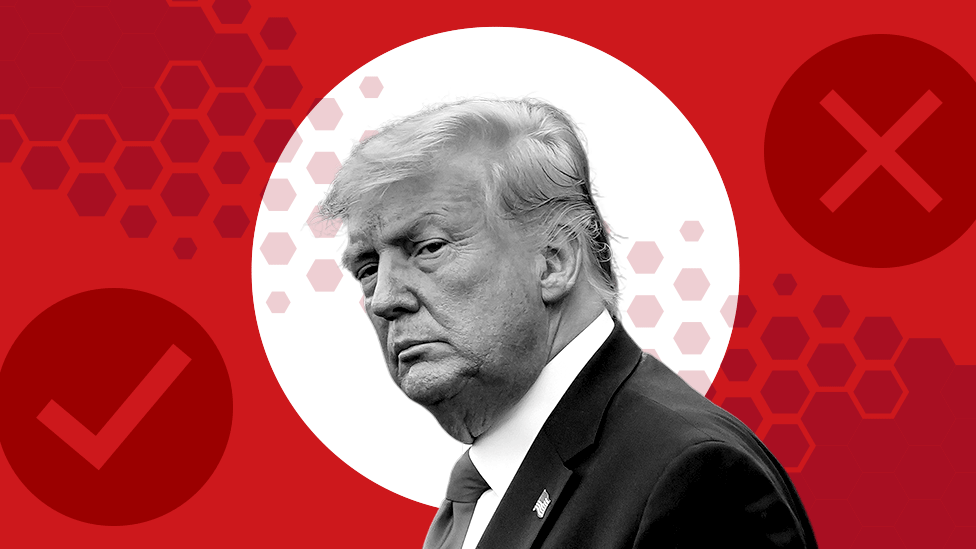Amnesty accuses President Trump of human rights violations
- Published
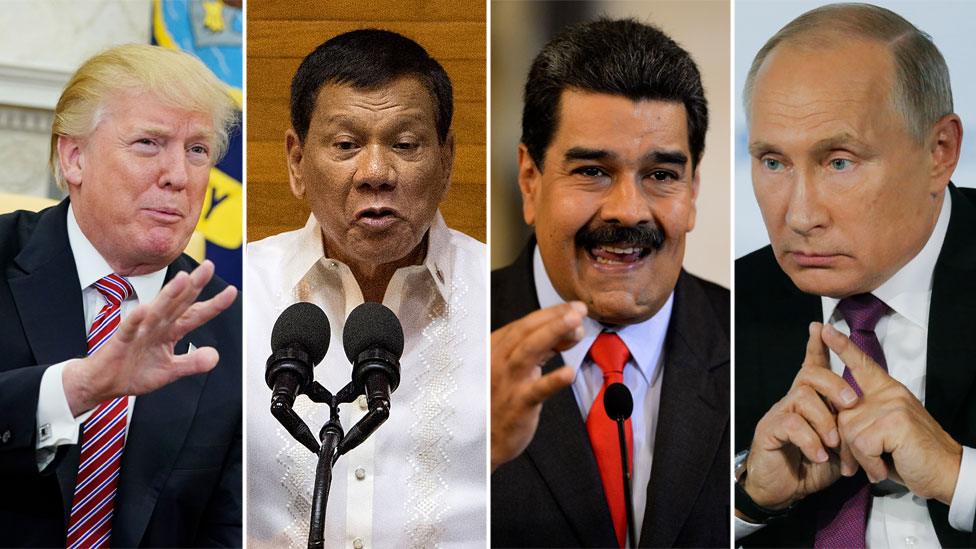
Trump is among the world leaders "callously undermining the rights of millions", Amnesty said
Human rights group Amnesty International has accused Donald Trump of "hateful" politics and of being a threat to human rights.
"President Trump takes actions that violate human rights at home and abroad," the group said.
Amnesty put Mr Trump in the same group as the leaders of Egypt, Russia, China, the Philippines, and Venezuela.
The organisation was launching its annual report, staging the event in Washington for the first time.
"The spectres of hatred and fear now loom large in world affairs, and we have few governments standing up for human rights in these disturbing times," said Salil Shetty, head of Amnesty.
"Instead, leaders such as al-Sisi, Duterte, Maduro, Putin, Trump and Xi are callously undermining the rights of millions," referring to the leaders of Egypt, the Philippines, Venezuela, Russia, the US and China.
It also called Mr Trump's travel ban - implemented days after he took office - a "transparently hateful move".
The ban - which targeted a number of Muslim-majority countries - "set the scene for a year in which leaders took the politics of hate to its most dangerous conclusion", Mr Shetty said.
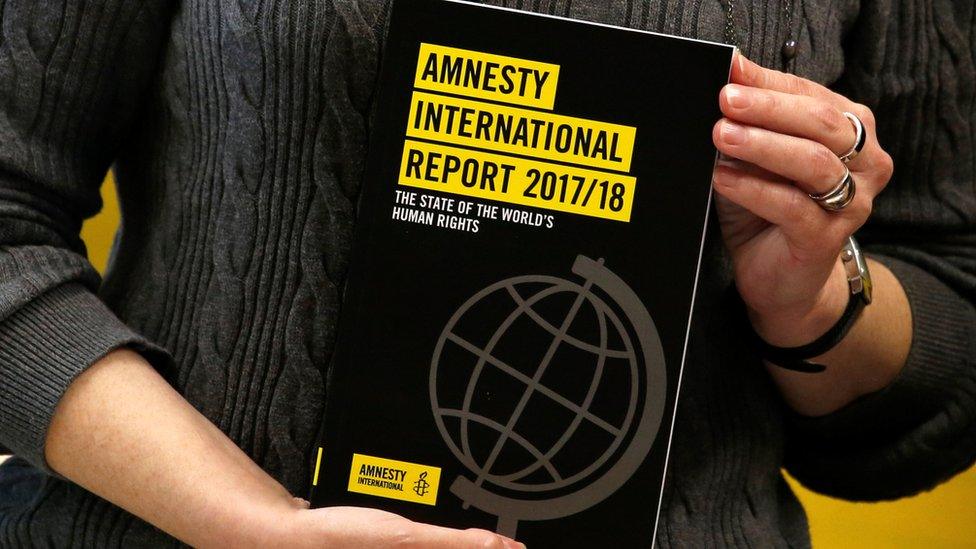
The full report covers most of the world's recognised nations, running to hundreds of pages
The 400-page report summarises human rights issues of concern to Amnesty in 159 countries across the world.
Among the many issues highlighted in the report are:
The "horrific military campaign of ethnic cleansing" against Rohingya Muslims in Myanmar
"Crimes against humanity" and war crimes in Iraq, South Sudan, Syria, and Yemen
Attempts to roll back women's rights in the US, Russia, and Poland
Sweeping crackdowns on LGBT communities in Chechnya and Egypt
President Duterte's "contempt" for rights in his war on drugs in the Philippines
Northern Ireland's abortion restrictions and UK police counter-terrorism powers
It criticised what it called a "feeble response" by world leaders to human rights issues and what it called the willingness to tout "fake news" in order to manipulate public opinion.
But the group also highlighted the work of activists and protest movements around the world inspired by what it called regressive policies.
"Donald Trump's policies may have marked a new era of human rights regression but they are not unique," Mr Shetty said.
He called on world leaders to "tackle the big challenges" in the year ahead.
- Published19 January 2018
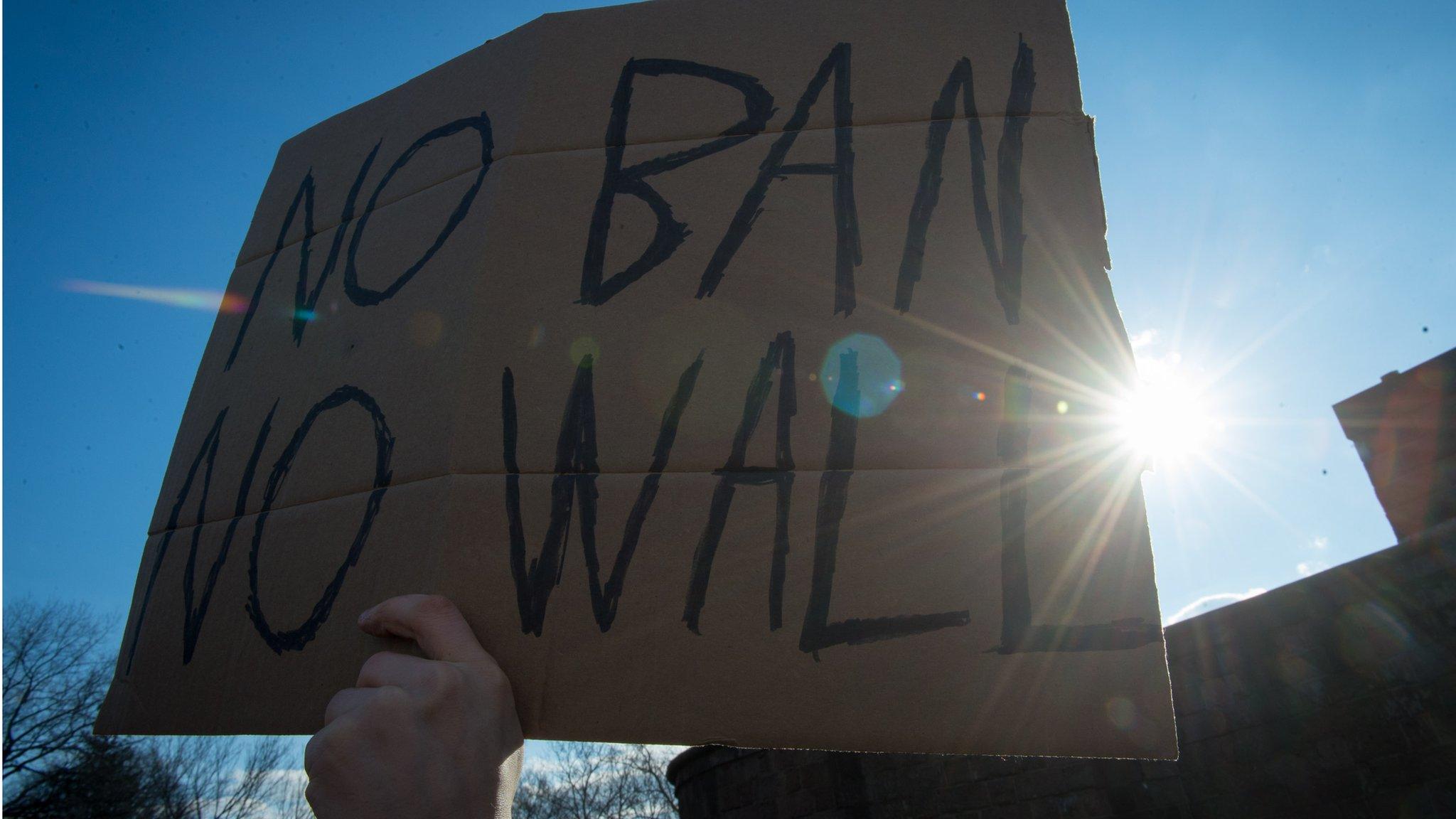
- Published22 February 2017
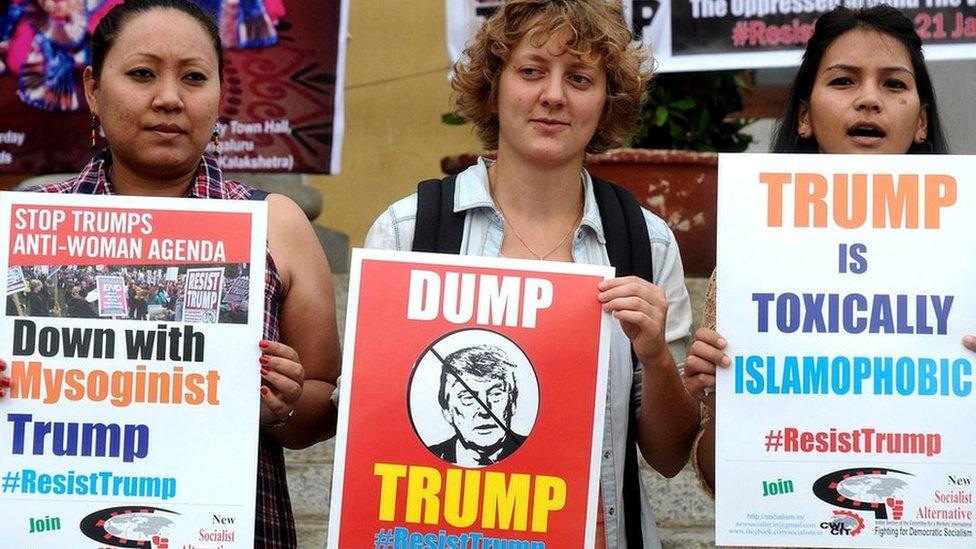
- Published31 January 2018
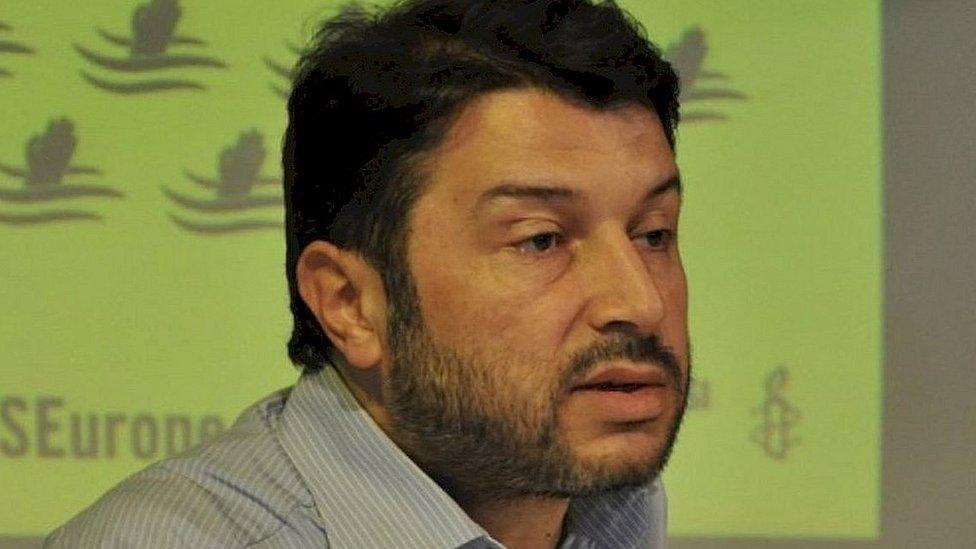
- Published15 February 2018
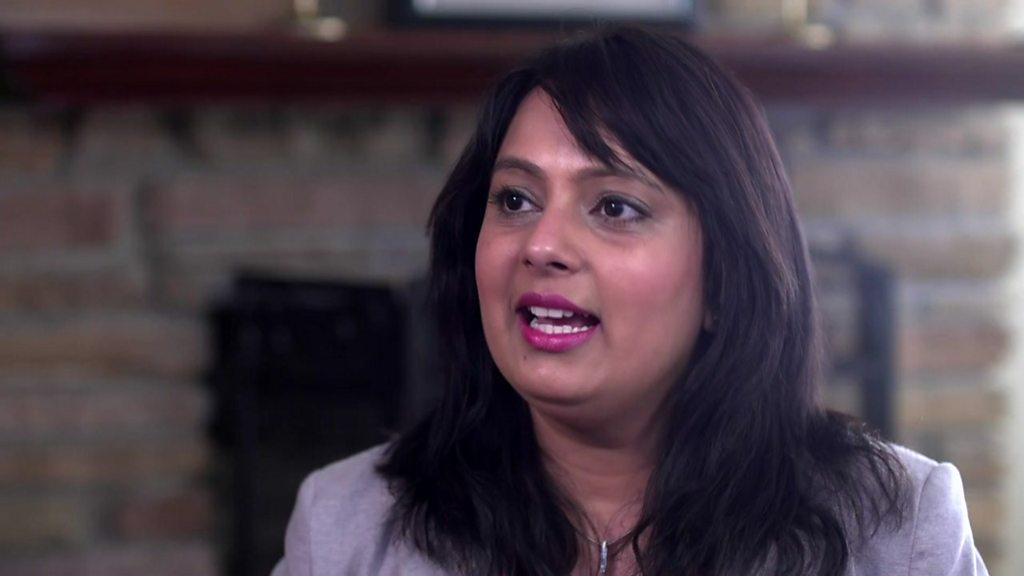
- Published15 October 2020
